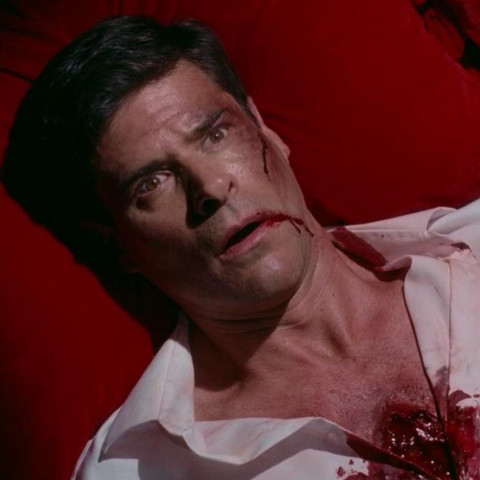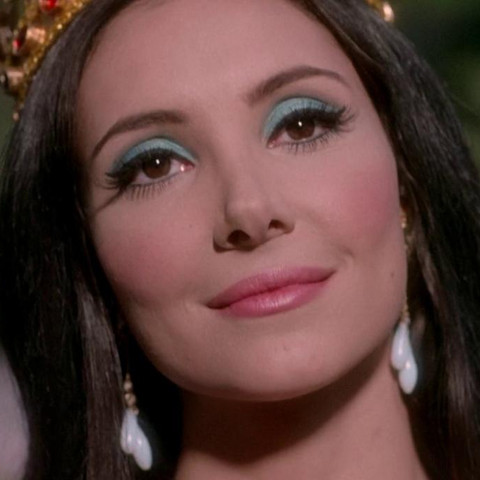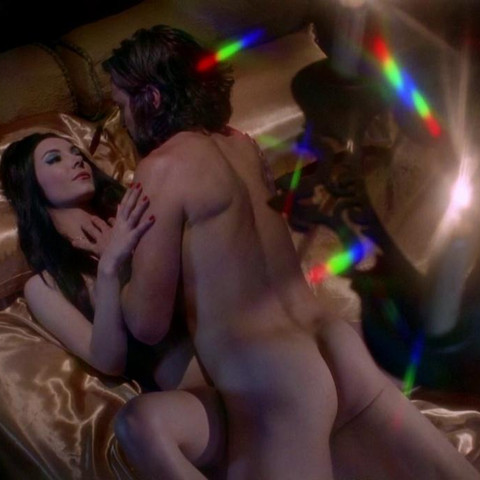The Love Witch: A Horrific Exploration about the Mental Repercussions of Abusive Relationships.
- gelsomina de lucia
- Sep 13, 2020
- 5 min read
Biller's attempt to discuss feminism fails, while topics such as mental health prevails.
Since its release in 2016, Anna Biller's 'The Love Witch' has become synonymous with feminism. However, by stating that this explicit feminist piece solely discusses female centric issues, restricts and denies other layers. This mini review will briefly touch upon how The Love Witch explores the mental repercussions of abusive relationships.

Samantha Robinson in the role of The Love Witch.
The opening sequence introduces us to Elaine and allows her to openly reveal that she has murdered her ex husband due to a “nervous breakdown” after he left her. She comforts the audience by saying she is “cured” but her expression is possessed by fear as she states that she “still gets intrusive thoughts”. The most important revelation in the opening sequence is when Elaine shares that she is a victim of abuse.
“My therapist told me that I am not unusual at all. People are abused all over the world. Everyday. Much worse than me…and they do fine.”
On the surface, this dialogue serves to assure the audience that her experience was not as bad as it seems. However, this is a form of dismissal and it is present throughout the film. This dismissive behaviour is prevalent during a stressful moment for Elaine and it is otherwise known as 'Escapism'.
One specific scene which displays this clearly is the closing sequence. Elaine violently murders one of her lovers and as soon as she is satisfied with her outburst, her mind immediately finds comfort in the fairytale universe she has been trying so intensely to actualise throughout the film.
Final shots of The Love Witch after Elaine has murdered her lover.
As evident in the film stills above, this escapism comforts her. The first still displays worry in her eyes but, as soon as she imagines herself with her Prince Charming in her imaginary world, she smiles in a dissociated manner. This purging of her truth causes a cataclysmic affect on her perspective, mental health and causes chaos towards people within her social circle.
As the film progresses, we begin to establish that the “intrusive thoughts” are not of murder but flashbacks of her abuse. Half way through the film, we gain an insight into Elaine’s psyche which explicitly displays that it is tormented by toxic words injected into her by her ex husband and father, thus indicating that Elaine has constantly been surrounded by abusive men.
A flashback - or "intrusive thought" - presents itself half way through the film and bombards the audience with abusive and condescending language while - simultaneously - allowing the audience to establish Elanie's history.
The quotes from that segment are as follows:
"I love you Elaine…you know that don’t you? I love you very much…But you need to be more careful. Dinner was late three times this week and that house is a total pig stye. Did you know I found a whole hot dog under the bed this morning? And why don’t you ever brush your hair? You need to take care of yourself and of the house. I am embarrassed to have people over. I’ve been real patient up until now but you need to step up your game."
“I have a crazy bitch for a daughter. What? You’re not crazy? Well, if you aren’t crazy you’re stupid. Which one is it? Are you crazy or are you stupid? And you can lose a few pounds. You are looking a little fatty.”
“Omg Elaine! You have lost so much weight! You have such a hot body now! I want to make you cum.”
Once dissected, the first quote and third quote above brings to light how her ex husband has heavily influenced and distorted her perspective and behaviour as she reenacts everything he has told her to do in order to gain "perfect love and perfect trust" from other men. Elaine’s first encounter with her first lover - shown below - explicitly displays this.
Elaine with her first lover highlights the impact of her ex husbands toxic behaviour.
She insists on cooking for him and preparing a table for two. As soon as they finish eating, they immediately have sex. Everything she does in this sequence is to please him the ways her ex husband has brainwashed her to do (shown in first and third quote above) in order to receive "perfect love and perfect trust". These misogynistic beliefs being injected into our protagonist/antagonist are not the only issue in this sequence. During the intimate scene, there is an effect over the shot which can heavily symbolise that Elanie is dissociating.
Dissociative disorders are a mental illness that affects the way you think. Traumatic experiences, difficult problems that cause stress, and difficult relationships are a few examples that can lead to dissociative disorders (Rethink.org)

Some would argue that this effect over the sex scene alludes to pleasure. However, I struggle to read this scene in any other way bar dissociation. As mentioned above, you may dissociate when you are feeling stressed. There are echoes of sexual abuse toward Elaine throughout the film from the cult leader prior to meeting her first lover. It would be perfectly normal for Elaine to dissociate during this moment. Consequentially, her amalgamation of abusive scenarios formulated a detrimental influence upon the way Elaine views men therefore signifying that she is not “cured” like she states in the beginning.
Hooks (2000) offers a generic yet poignant description of feminism by stating that feminism is simply a “movement to end sexism, sexist exploitation, and oppression.” Hooks continues her introductory paragraph by debating that this definition is “open-ended” therefore, encompasses men. On this premise, The Love Witch should not be classified as a feminist icon as she puts men down for crying and reduces them to sexual beings who exist to please her.
Some might argue that her behaviour mirrors that of misogynist. However, my understanding of this behaviour situates her within the 'abused becomes the abuser' complex. I primarily see her in par to Norman Bates. They have both been subject to abuse for multiple years and have become torn between their own desires and trapped within ideals set to them by people abusing their power.
In conclusion, describing Elaine solely as a feminist icon truly hinders further interpretations of the text. By diving into the film and placing its surface narrative to one side, one is able to digest more. This film may not have intended to be read in this manner but once considered, it is difficult to ignore that the film touches upon the horrors on the mental repercussions of abusive relationships.





















Comments